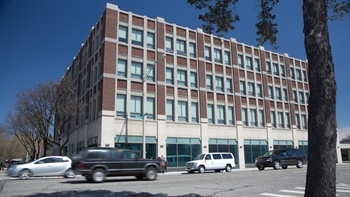RHI Around the Nation
Essential ingredients for a regional housing authority collaborative
How can other regions sustain and replicate regional collaboration between housing authorities, regional planning organizations, governments, fair housing advocates and developers? Our experience teaches us it’s wise to:
-
Organize a consortium consisting of regional businesses, housing policy experts, government and nonprofit stakeholders
to better understand the relationship between regional housing needs, current and future employment centers, poverty trends, transit and segregation. In the Chicago metropolitan area, MPC played a critical role in bridging a multitude of interests to design pragmatic and innovative housing policy solutions.
-
Align critical housing authority policies to create efficiencies, while remaining true to local needs, costs and policies.
The 14 Chicago area housing authorities have a wide range of voucher policies, from waiting list preferences for disability and aging, to credit and background checks, to bedroom size restrictions, which hinder families from moving easily within the region and are administratively complicated for housing authorities and the regional collaborative to manage. MPC drafted an intergovernmental agreement and an addendum to each of the housing authorities’ administrative plans, outlining RHI’s policies and procedures and streamlining a range of practices. Assistance from national and local experts helped craft an Operating and Management Agreement to allow a housing authority to operate project-based vouchers outside of its jurisdiction to support a regional intergovernmental partnership.
-
Develop incentives for housing authority participation in regional equity initiatives.
A framework that provides financial incentives or additional administrative fees to reward the expansion of affordable housing in opportunity areas is a potential solution. HUD is currently evaluating its existing administrative fee structure, and we recommend a component to reward housing authority participation in innovative pilots to expand housing choice.
-
Define “opportunity areas.”
Critical to any regional effort to create integrated, strong communities is an evaluation of both what is considered a quality housing development and if the surrounding community is suitable for an affordable or mixed-income development. Originally, RHI worked with the Mayors Caucus to adopt the Housing Endorsement Criteria, which outlines the types of housing that communities should be working toward building. Under the HUD pilot, RHI and the pilot partners integrated a quantitative definition of opportunity areas. To align with a regional assessment of fair housing barriers, RHI adopted the Fair Housing Equity Assessment (FHEA) metric that is being implemented nationally by HUD and locally by the Chicago Metropolitan Agency for Planning, the region’s federally certified Metropolitan Planning Organization. The FHEA integrates poverty, housing stability, job access, labor market engagement, school performance and transit access metrics. It is the standard used to evaluate housing development proposals by the region’s housing authorities as they work to deconcentrate poverty through interventions with families interested in moving.
Call to action
With housing insecurity continuing to burden unemployed, underemployed and working poor families across the region and nationally, it is imperative that advocates, housing authorities and communities continue to reach for proven solutions to improve quality of life, create stronger neighborhoods and drive vibrant, equitable growth. Here we offer one of many solutions—a regional collaborative that leverages HUD’s limited resources to promote affordable housing in opportunity communities and mixed-income housing in transitional communities. The RHI model is a creative mechanism to circumvent dated policies that deter regional cooperation.

Grove Apartments offers affordable housing in a neighborhood near jobs, schools and transit in Oak Park, Ill.
As advocated here by Bruce Katz at the Brookings Institution, a long-term strategy is to consolidate housing authority administration at the regional level. There are multiple housing authorities in metropolitan areas, which results in serious inefficiencies in program operation, including duplications in waiting lists, data management, certifying households and outreaching to landlords. In the wake of the recession and declining federal resources, housing authorities could see savings from consolidating programmatic and database functions. Not only are duplicative systems costly from a government spending perspective, it is also challenging for voucher families to navigate the varying administrative policies across one region when they are searching for housing. Now, more than ever, greater attention must be paid to how archaic government structures impact the nation’s poor.
In the near term, RHI is pursuing a cross-metropolitan strategy to test innovative regional solutions and will be looking to HUD and actors across the Chicago region to engage. While a regional housing authority model would be truly innovative, a feasible short-term solution is to formalize the collaborative as a housing authority consortium. We encourage local, regional and statewide actors to join with us as we advocate for a new paradigm and policies to expand affordable housing opportunities.
Pilot leaders
BRicK Partners, LLC
Chicago Housing Authority
DuPage Housing Authority
Housing Authority of Cook County
Housing Choice Partners
Joliet Housing Authority
Lake County Housing Authority
McHenry County Housing Authority
Metropolitan Planning Council
Oak Park Housing Authority
Waukegan Housing Authority
|
Key funders
U.S. Dept. of Housing and Urban Development
John D. and Catherine T. MacArthur Foundation
|
For more information
Watch the video and learn more at metroplanning.org/rhi
Breann Gala
Project Manager
bgala@metroplanning.org
312 863 6029